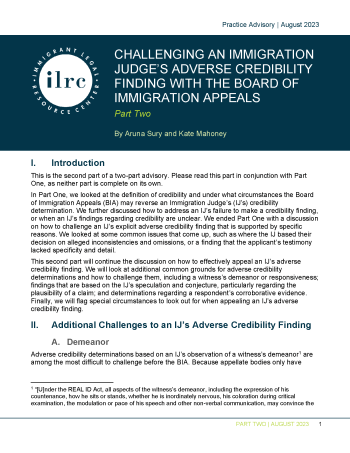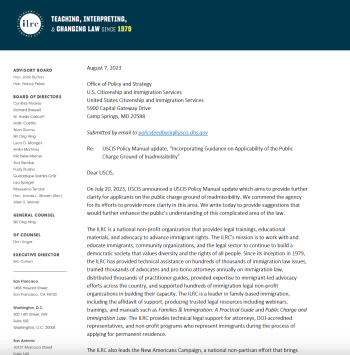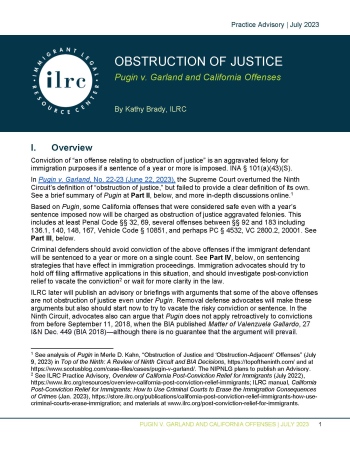This guide walks through the latest updates regarding TPS for immigrants from El Salvador, Honduras, Nepal, and Nicaragua. Included are frequently asked questions about the program, renewal timelines, and more.
This Community Explainer is designed to explain what an ITIN is, why it may be particularly important for immigrants without a Social Security Number, and how one can be obtained.
There is a new law in California that went into effect in 2023 called the California Clean Slate Act (SB 731). Under the Clean Slate Act, authorities will automatically expunge – or dismiss – certain arrests and criminal convictions. While expungement provides relief in the California state criminal legal system, it does not provide the same relief in the immigration context. This explainer walks through some key points about this new law and its implication for immigrants with prior contact with law enforcement.

This is the second part of a two-part practice advisory on how to effectively challenge an immigration judge's adverse credibility finding with the Board of Immigration Appeals. The two advisories should be read together, as neither part is complete on its own. This second part of the advisory discusses how to challenge adverse credibility findings based on a witness's demeanor or responsiveness; findings that are based on an immigration judge's speculation and conjecture, particularly regarding the plausibility of a claim; and determinations regarding a respondent’s corroborative evidence. It also flags special circumstances to look out for when appealing an immigration judge's adverse credibility finding.

On August 7, 2023, the ILRC provided a comment to a recent USCIS Policy Manual update seeking to clarify who is subject to the public charge ground of inadmissibility. In the comment, ILRC provided suggested language for both the Policy Manual and the Form I-485 that would help to further lessen confusion that practitioners and applicants are facing in this area. ILRC also recommended changes to the USCIS web site for Form I-485 to ensure that information is consistent and accurate for applicants.
In the Spring of 2023, the ILRC surveyed partner organizations and immigration practioners to get a sense of how the Biden Administration’s enforcement priorities were impacting interior enforcement. Unsurprisingly, our analysis of the data showed that federal guidance does not prevent ICE from targeting and detaining people who do not meet agency priorities.

Conviction of “obstruction of justice” is an aggravated felony if a sentence of a year or more is imposed. In Pugin v. Garland, No. 22-23 (June 22, 2023), the Supreme Court overturned the Ninth Circuit’s definition of obstruction, but failed to provide a clear definition of its own. Now some California offenses are likely aggravated felonies if there is a sentence of year or more, including Penal Code §§ 32, 69, 136.1, 148, Vehicle Code § 10851, and others.
This Advisory discusses California offenses under Pugin, and discusses California criminal sentencing dispositions that avoid a sentence of a year or more for immigration purposes.
This Advisory discusses California offenses under Pugin, and discusses California criminal sentencing dispositions that avoid a sentence of a year or more for immigration purposes.
This quick guide shares how to check your Selective Service registration status. For various applications with U.S. Citizenship and Immigration Services (USCIS), providing proof of registration with the Selective Service System is a vital part of qualifying for immigration relief. Learn more with this step-by-step guide.
This FAQ provides an update on immigration application filing fee changes that were recently proposed by U.S. Citizenship and Immigration Services (USCIS).